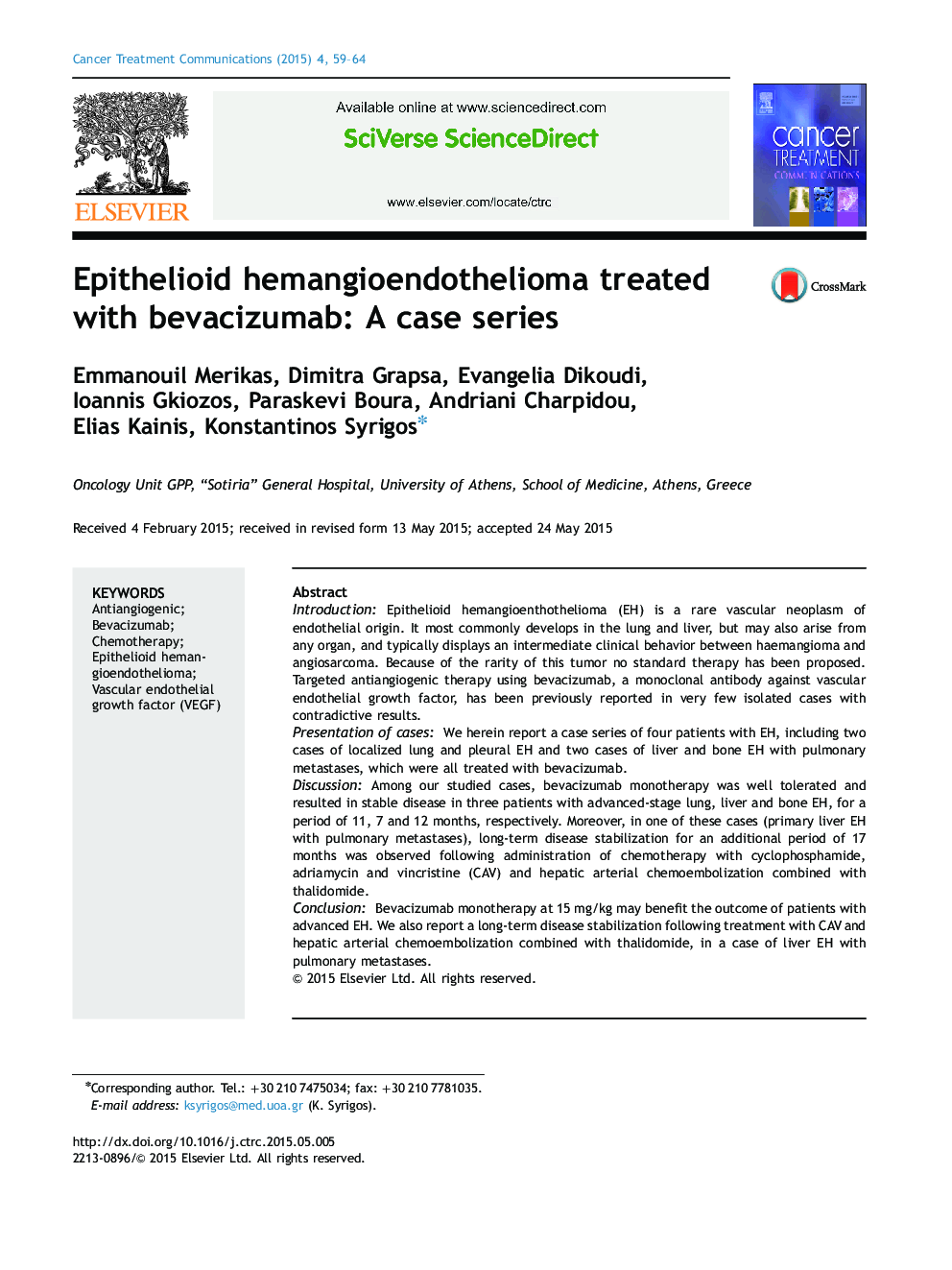| Article ID | Journal | Published Year | Pages | File Type |
|---|---|---|---|---|
| 6190243 | Cancer Treatment Communications | 2015 | 6 Pages |
IntroductionEpithelioid hemangioenthothelioma (EH) is a rare vascular neoplasm of endothelial origin. It most commonly develops in the lung and liver, but may also arise from any organ, and typically displays an intermediate clinical behavior between haemangioma and angiosarcoma. Because of the rarity of this tumor no standard therapy has been proposed. Targeted antiangiogenic therapy using bevacizumab, a monoclonal antibody against vascular endothelial growth factor, has been previously reported in very few isolated cases with contradictive results.Presentation of casesWe herein report a case series of four patients with EH, including two cases of localized lung and pleural EH and two cases of liver and bone EH with pulmonary metastases, which were all treated with bevacizumab.DiscussionAmong our studied cases, bevacizumab monotherapy was well tolerated and resulted in stable disease in three patients with advanced-stage lung, liver and bone EH, for a period of 11, 7 and 12 months, respectively. Moreover, in one of these cases (primary liver EH with pulmonary metastases), long-term disease stabilization for an additional period of 17 months was observed following administration of chemotherapy with cyclophosphamide, adriamycin and vincristine (CAV) and hepatic arterial chemoembolization combined with thalidomide.ConclusionBevacizumab monotherapy at 15Â mg/kg may benefit the outcome of patients with advanced EH. We also report a long-term disease stabilization following treatment with CAV and hepatic arterial chemoembolization combined with thalidomide, in a case of liver EH with pulmonary metastases.
